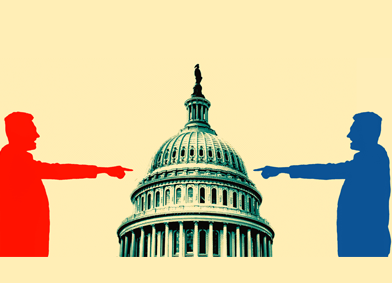Call Us Today (203) 439-7731
Call Us Today (203) 439-7731

As of November 6, 2025, the U.S. federal government has been partially shut down for over a week, stemming from partisan disagreements over budget allocations for defense, border security, and social programs. Congress failed to pass a continuing resolution by the October 31 deadline, furloughing hundreds of thousands of federal workers and halting non-essential services. For America's 58 million seniors aged 65 and older—who rely heavily on federal programs like Social Security, Medicare, and SNAP—this impasse is more than political theater; it's a direct threat to their financial stability and health.
Seniors are already feeling the pinch. While Social Security payments have continued uninterrupted—thanks to the program's dedicated trust fund—processing for new claims, appeals, and disability determinations has ground to a halt. The Social Security Administration (SSA), with 60,000 employees, has furloughed over half its workforce, leading to backlogs that could delay benefits for retirees navigating enrollment or adjustments by weeks or months.
Medicare, the lifeline for 65 million enrollees, faces similar chaos. Claims processing by the Centers for Medicare & Medicaid Services (CMS) is severely limited, causing providers to pause non-emergency services for fear of unpaid reimbursements. In Florida, a hub for retirees, hospitals report turning away routine check-ups, while in California, home health aides are rationing visits. One 72-year-old from Phoenix, Arizona, shared with local news that her chemotherapy infusion was postponed twice, exacerbating her stage III breast cancer treatment.
Food assistance programs like SNAP (Supplemental Nutrition Assistance Program) are also hit. Although benefits are auto-deposited, state agencies dependent on federal guidance can't update eligibility or investigate fraud, stranding thousands of low-income seniors. In rural Kentucky, food banks report a 30% surge in demand, with pantries emptying faster than supplies arrive.
Beyond finances, the shutdown endangers seniors' well-being. The Department of Veterans Affairs (VA), serving 9 million elderly vets, has deferred non-urgent surgeries and mental health appointments. In Texas, a 78-year-old Gulf War veteran waited three days for a prescription refill, risking a hypertensive crisis. Environmental protections falter too: The EPA's monitoring of air and water quality in senior-heavy communities like assisted living facilities in the Midwest has paused, potentially delaying alerts for hazardous conditions.
National Parks and public lands, often therapeutic escapes for active seniors, are closed, isolating those combating loneliness—a factor in 40% of senior depression cases, per AARP data. Travel disruptions compound this; IRS refund delays mean fewer funds for holiday family visits, hitting fixed-income households hardest.
Should this stalemate drag into December, the fallout could be devastating. Economists at the Bipartisan Policy Center warn of a $1.5 billion daily economic hit, with seniors bearing disproportionate losses. Medicare's trust fund, already strained, might face accelerated depletion if provider bankruptcies spike—projections show up to 15% of rural hospitals at risk within 60 days.
Social Security's administrative freeze could balloon into a six-month backlog, delaying benefits for 1.2 million new retirees annually and triggering a wave of evictions among those bridging gaps with savings. SNAP disruptions may evolve into outright benefit cuts if federal funding lapses fully, pushing 4 million senior households toward hunger; Feeding America estimates a 20% rise in food insecurity rates.
Long-term, prolonged uncertainty erodes trust in government programs. AARP surveys indicate 70% of seniors already anxious about benefit reliability, which could deter future enrollment and widen health disparities. Politically, it risks alienating the powerful AARP bloc, influencing midterms and beyond.
This shutdown isn't abstract—it's robbing seniors of dignity and security they've earned. Lawmakers must prioritize a clean funding bill, exempting essential services for the vulnerable. Until then, community resources like local senior centers and 211 helplines offer temporary aid. America's elders deserve better than gridlock; their resilience built this nation, and it's time to repay that debt.